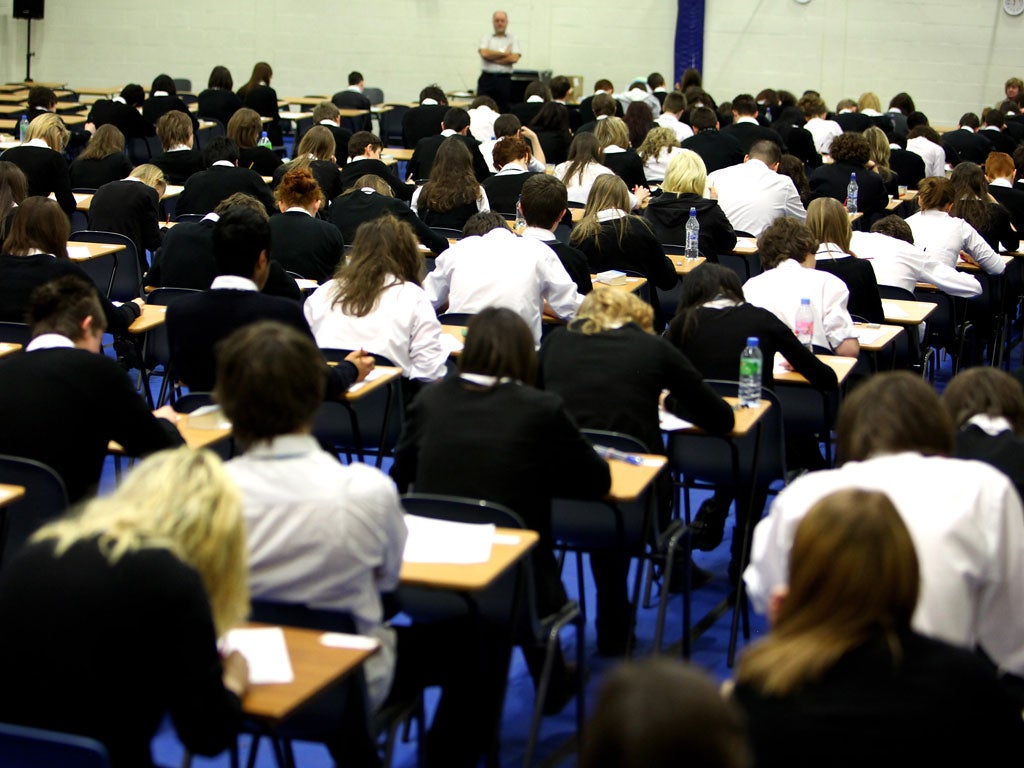Students join legal action to force Ofqual to order GCSE regrading

Your support helps us to tell the story
From reproductive rights to climate change to Big Tech, The Independent is on the ground when the story is developing. Whether it's investigating the financials of Elon Musk's pro-Trump PAC or producing our latest documentary, 'The A Word', which shines a light on the American women fighting for reproductive rights, we know how important it is to parse out the facts from the messaging.
At such a critical moment in US history, we need reporters on the ground. Your donation allows us to keep sending journalists to speak to both sides of the story.
The Independent is trusted by Americans across the entire political spectrum. And unlike many other quality news outlets, we choose not to lock Americans out of our reporting and analysis with paywalls. We believe quality journalism should be available to everyone, paid for by those who can afford it.
Your support makes all the difference.Scores of pupils joined forces with schools and head teachers last night to mount an unprecedented legal action over the exams regulator's refusal to regrade this summer's GCSE English papers.
An extraordinary alliance of 180 pupils, 115 schools, 36 local authorities and seven professional organisations has been formed to launch a legal challenge to Ofqual and exam boards. The move follows a last-minute decision to raise the boundary for a C-grade pass in English this summer – which left up to 65,000 students threatened with the loss of sixth-form or college places to take A-levels.
The legal action demands that Ofqual orders the papers regraded or faces a High Court claim for a judicial review within seven days.
Jonathan Clarke, one of the pupils involved in the action, who took his GCSEs at St Matthew Academy in Blackheath, south London, said: "I worked hard for a C grade in English and it has been taken away from me right at the end. That is just not fair.
"I am now having to redo the course with a different exam board over the next year at the same time as doing four A-levels."
Michael Barry, his head teacher, said: "Jonathan is one of 31 students from our school who has suffered in this way. He is a hard-working conscientious student, getting two A*s, four As, two Bs, three Cs and then a D in English. It is obvious that something is wrong here."
The signatories to the action, who include heads of Education Secretary Michael Gove's cherished academies, have sent a pre-action letter to Ofqual, giving it seven days to respond before they approach the courts.
The key point they make is that it is unjust for pupils who sat the exam in January – before the grade boundary for a C was raised by 10 marks – to receive a higher grade after scoring exactly the same marks as those who sat the exam in June.
In addition, 2,386 pupils in Wales have had their grades increased as a result of an order by the Welsh Assembly.
Two of the big three exam boards – the Assessment and Qualifications Alliance (AQA) and Edexcel – are also named in the action.
In their letter the signatories state: "It is inconceivable that two cohorts of students enrolled for the same course in the same academic year who have undertaken the same work and invested the same effort and who will be competing in future for the same opportunities should be subjected to such radically different standards of assessment and award." The signatories also claim the action was discriminatory, in that its effect was greater on disadvantaged and ethnic minority pupils.
Ofqual ruled that the June marking had been correct and the January marks were "too generous" after adopting a policy of "comparative outcomes" towards this summer's exams.
Join our commenting forum
Join thought-provoking conversations, follow other Independent readers and see their replies
Comments